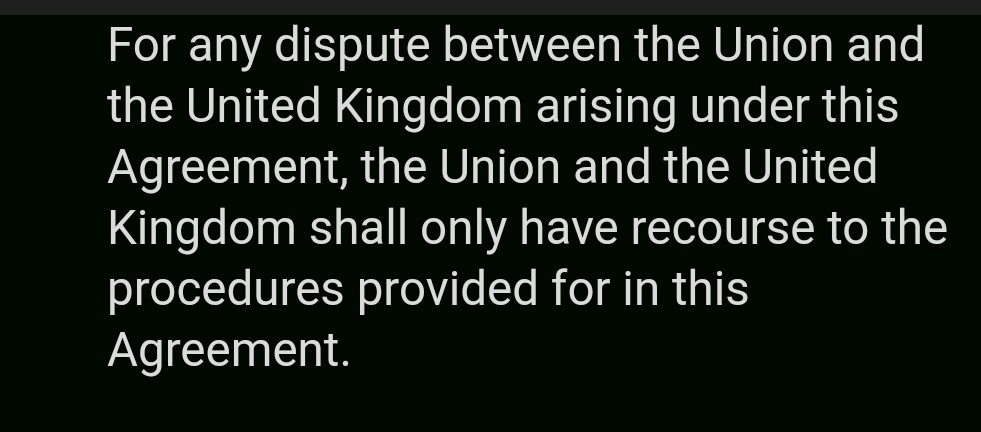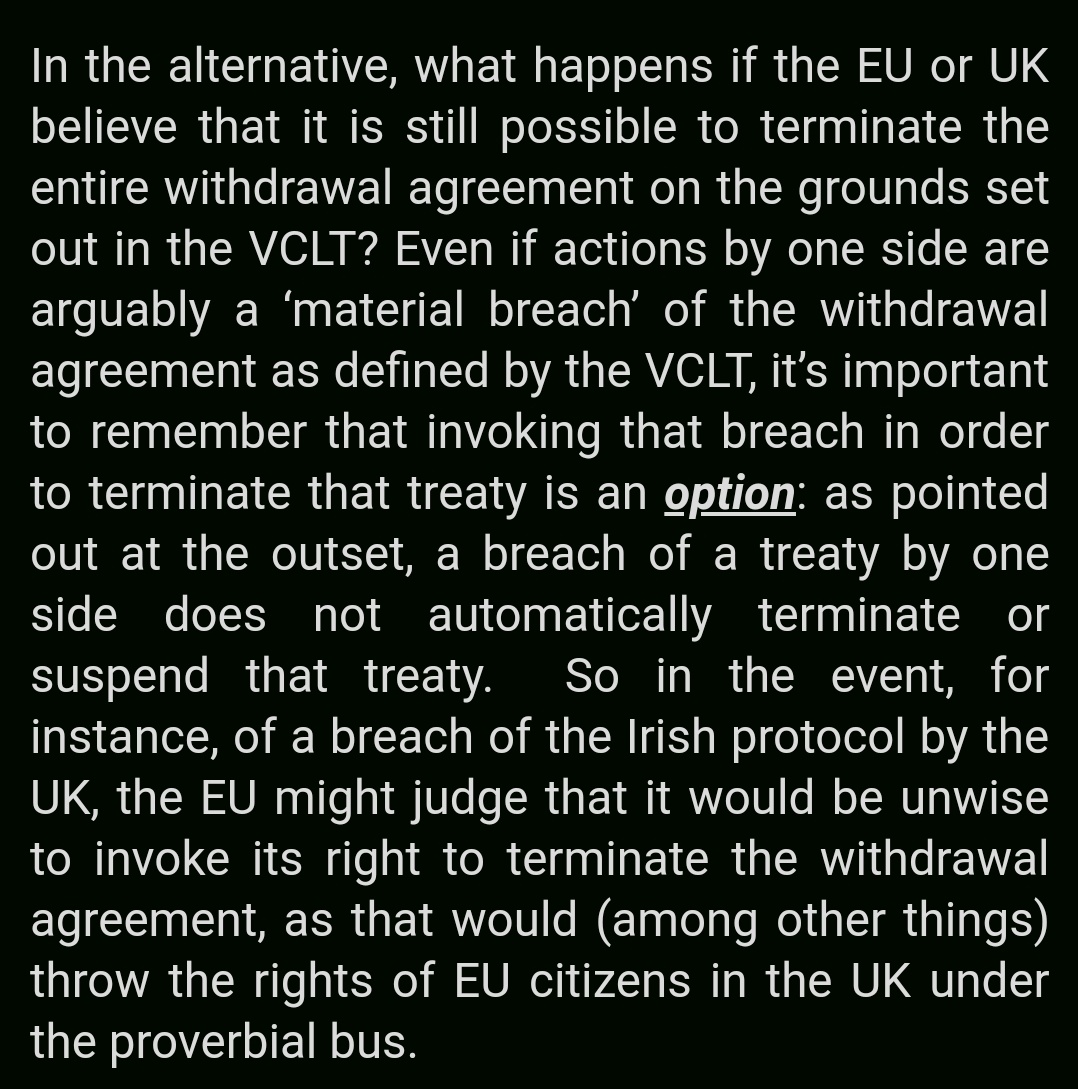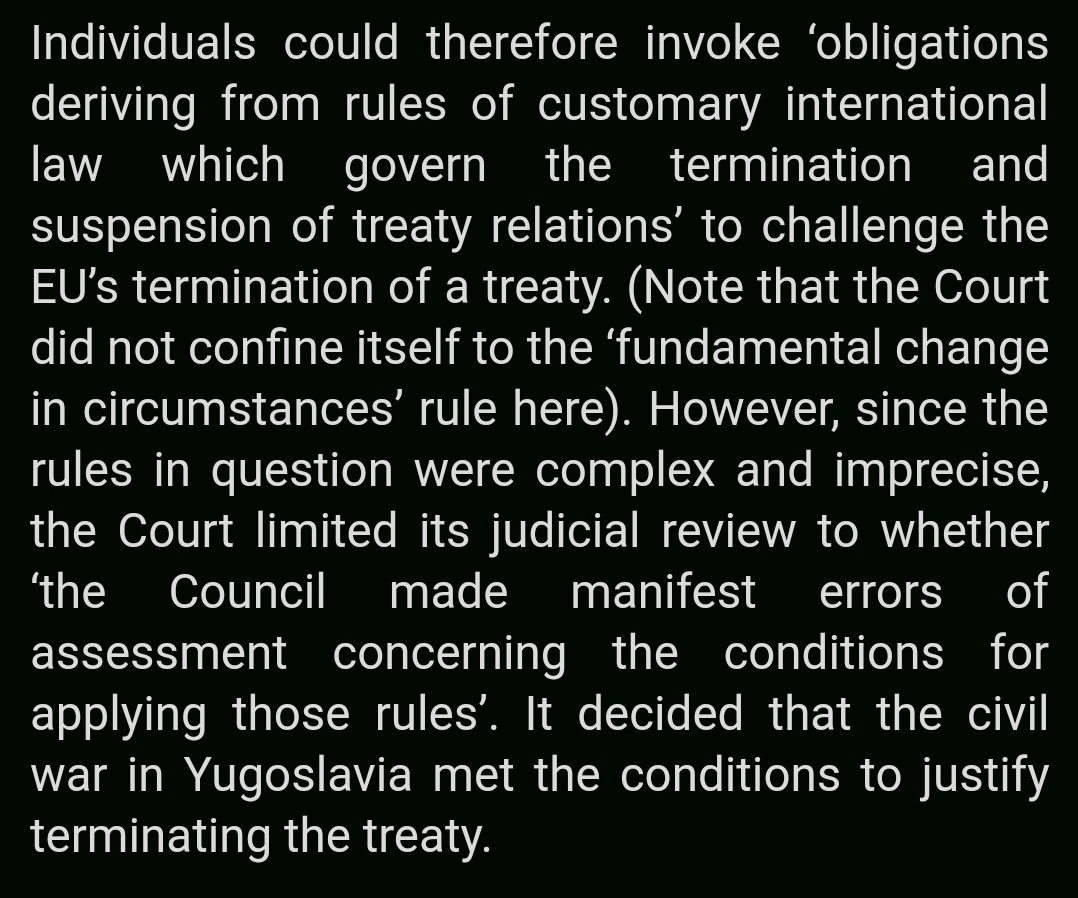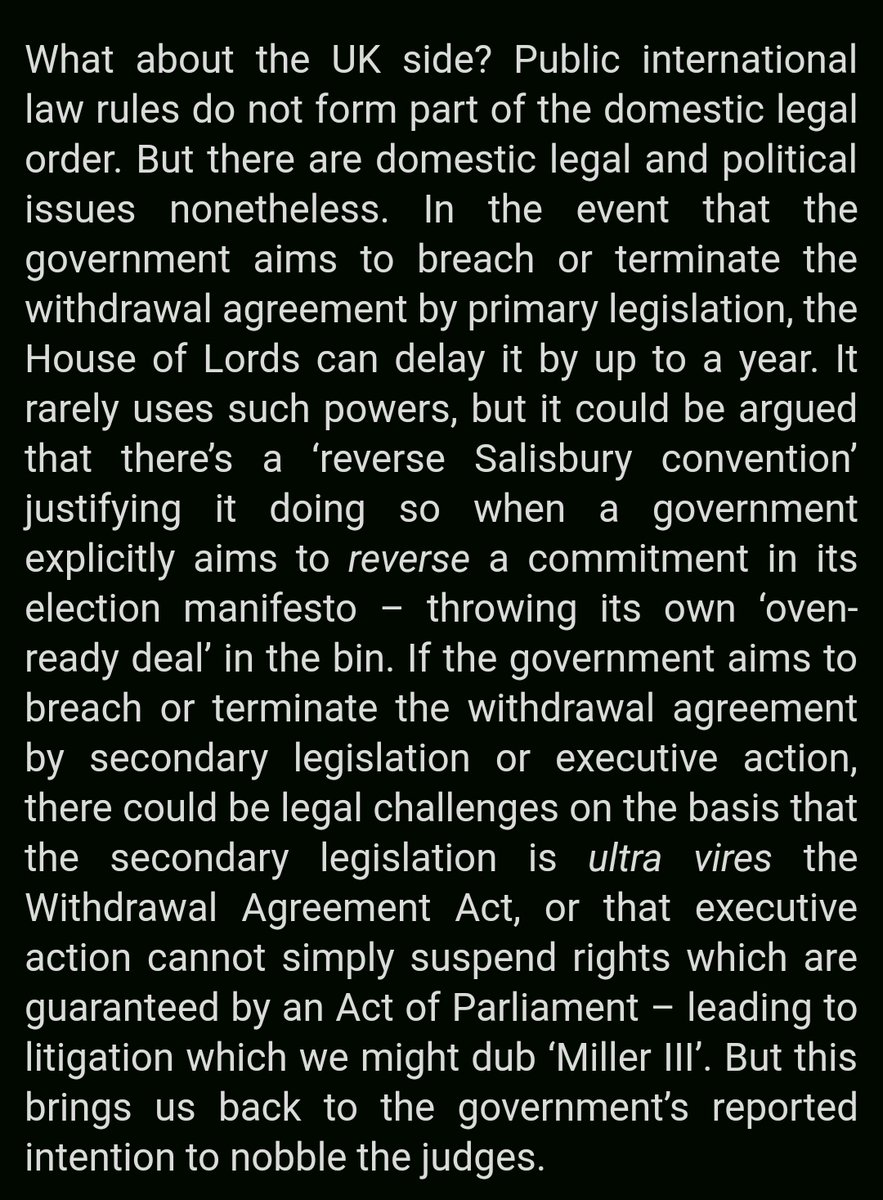1/ I have had several requests for a tl;dr version of this blog post on what happens in case of breach of the withdrawal agreement, so here you go...
2/ Breach of a treaty doesn& #39;t automatically terminate the treaty, or mean that the other side automatically retaliates. International law aims for treaties to stay in force.
Or, as international lawyers say: "spaffta sunt servanda"
Or, as international lawyers say: "spaffta sunt servanda"
3/ During the transition period, normal EU law applies. After that, the withdrawal agreement has a dispute settlement process. If the EU and UK can& #39;t agree, they can request arbitration. If the issue involves EU law, the arbitrators must ask the CJEU to interpret the EU rules.
4/ Arbitration is binding. If a ruling is not complied with, financial penalties or a proportionate suspension of the withdrawal agreement is authorised. The citizens rights& #39; provisions CAN& #39;T be suspended.
5/ EU and UK *must* use the provisions of the withdrawal agreement to settle disputes, rather than embark on Trumpian frolics of their own. Arguably that means they can& #39;t terminate the treaty (except for the limited possibility of dropping the trade part of the Irish protocol)
6/ IF the general rules of international law on termination of treaties apply, termination of the whole withdrawal agreement due to the other party& #39;s material breach of the treaty would still only be an option, *not* an automatic consequence of that breach.
7/ The CJEU has ruled before that the international law rules on termination of treaties can be pleaded by individuals to challenge the EU& #39;s decision to terminate a treaty (if it comes to that).
8/ On the UK side, the withdrawal agreement is implemented by domestic law. Termination of the treaty would be an issue for the political process, or possibly the courts, which the government reportedly plans to nobble.
9/ That& #39;s enough of that, time for some of this

 Read on Twitter
Read on Twitter







